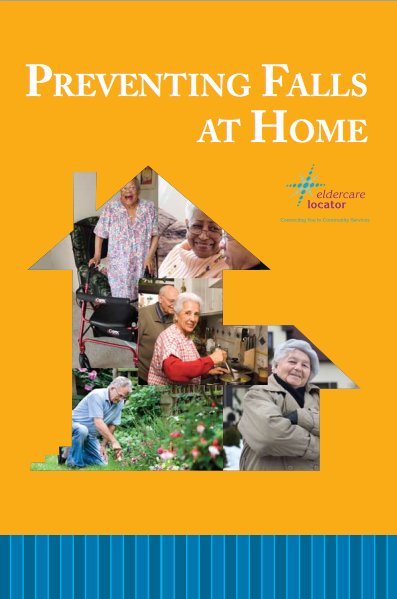|
Falls are a big concern for millions of elderly Americans and their families. In the United States, roughly one-third of the 65-and-older population will suffer a fall this year, often with dire with consequences. But many falls can be prevented. Here are some steps you can take to help you stay upright, and reduce your risk of falling.
Check your meds: Do you take any medicine or combination of medicines that make you dizzy, sleepy or lightheaded? If so, gather up all the drugs you take – prescriptions and over-the-counter – and take them to your doctor or pharmacist for a drug review. Schedule an eye exam: Poor vision can be another contributor to falls. If you wear glasses, check to see if you're wearing the correct prescription and beware of bifocals. Multifocal glasses can impair vision needed for detecting obstacles and judging depth. Check your balance: Balance disorders – which can be brought on by a variety of conditions like inner ear problems, allergies, a head injury or problems with blood circulation – are also a common cause of falls. If you are having some balance issues, make an appointment with your doctor to get it checked and treated.  Modify your home: Because about half of all falls happen around the home, some simple modifications can go a long way in making your living area safer. Start by picking up items on the floor that could cause you to trip like newspapers, books, shoes, cloths, electrical or phone cords. If you have throw rugs, remove them or use double-sided tape to secure them. In the bathroom put a non-slip rubber mat or self-stick strips on the floor of the tub or shower, and have a carpenter install grab bars inside the tub and next to the toilet. Also, make sure the lighting throughout the house is good, purchase some inexpensive plug-in nightlights for the bathrooms and hallways, and if you have stairs, consider putting hand rails on both sides. Modify your home: Because about half of all falls happen around the home, some simple modifications can go a long way in making your living area safer. Start by picking up items on the floor that could cause you to trip like newspapers, books, shoes, cloths, electrical or phone cords. If you have throw rugs, remove them or use double-sided tape to secure them. In the bathroom put a non-slip rubber mat or self-stick strips on the floor of the tub or shower, and have a carpenter install grab bars inside the tub and next to the toilet. Also, make sure the lighting throughout the house is good, purchase some inexpensive plug-in nightlights for the bathrooms and hallways, and if you have stairs, consider putting hand rails on both sides.
And in the kitchen, organize your cabinets so the things you use most often are within easy reach without using a step stool. For more tips, call the Eldercare Locater at 800-677-1116 and order a free copy of their "Preventing Falls at Home" brochure. Start exercising: Improving balance through exercise is one of the best ways to prevent falls. Strength training, stretching, yoga, tai chi are all great for building better balance. Some simple exercises that you can do anytime are walking heel-to-toe across the room, standing on one foot for 30 seconds or longer, or getting up from a chair and sitting back down 10 to 20 times. For more balance exercise tips, call the National Institute on Aging at 800-222-2225 and order their free exercise DVD and free exercise book or you can see it online at go4life.niapublications.org. 
Other pitfalls: Believe it or not, the improper use of canes and walkers sends around 47,000 seniors to the emergency room each year. If you use a cane or walker, be sure it's adequately adjusted to your height and that you're using it properly. A physical therapist can help with this, or see the Mayo Clinic slide show on how to choose and use a cane and a walker. Another possible hazard is pets. If you have a dog or cat, you need to be aware that – because they can get under foot – pets cause a lot of falls. Shoes are another issue to be aware of. Rubber-soled, low-heeled shoes are the best slip/trip proof shoes for seniors. |
Stay informed with our free Senior Newswire service





